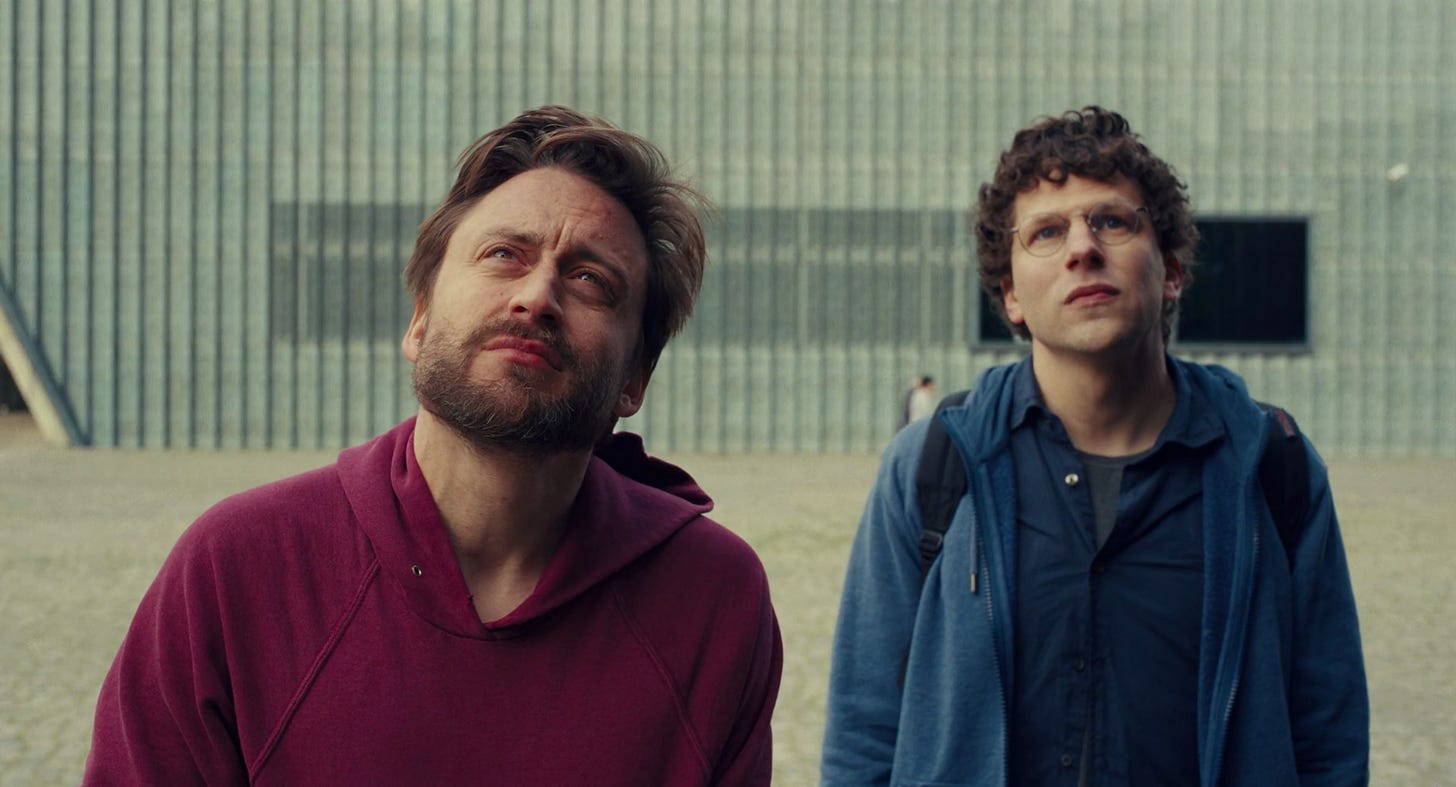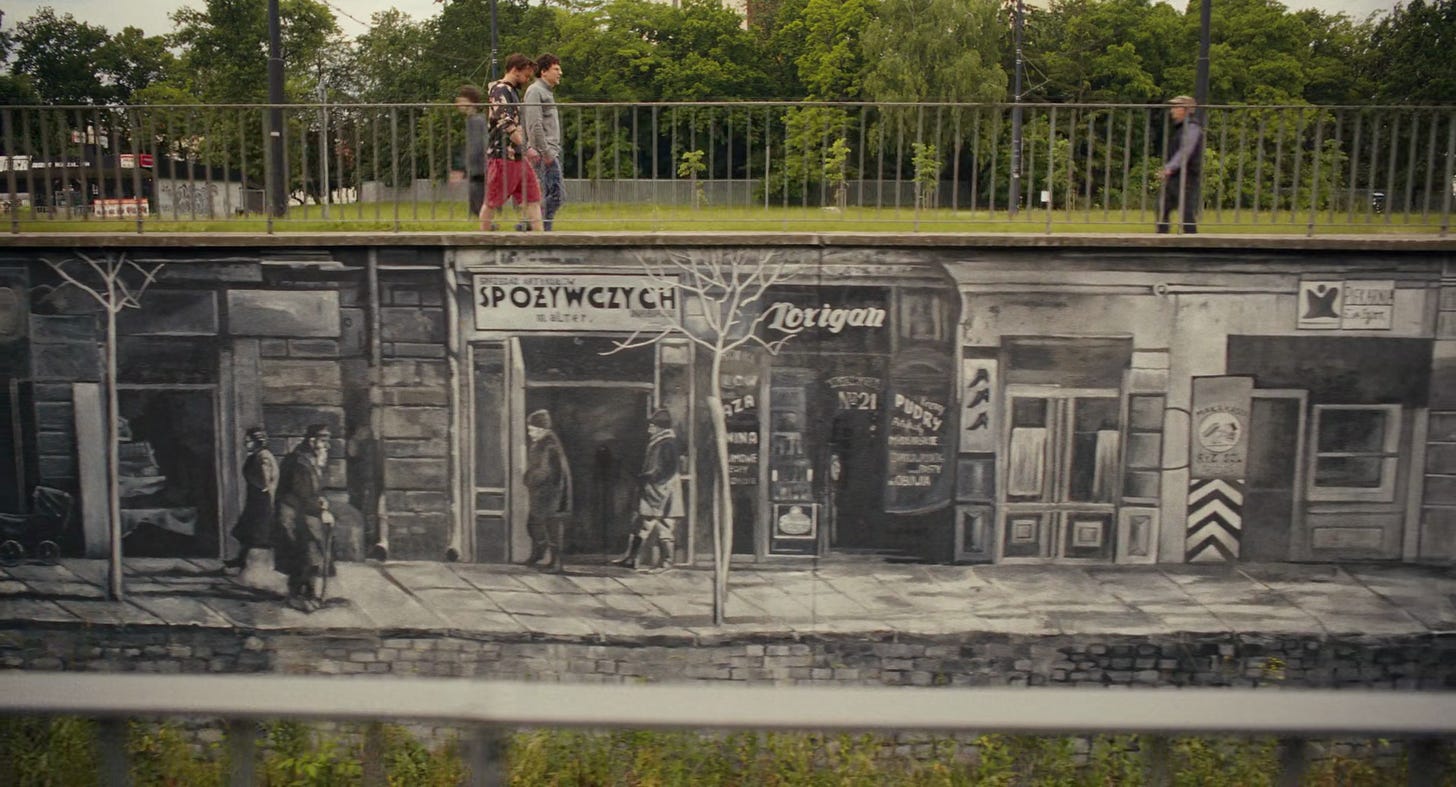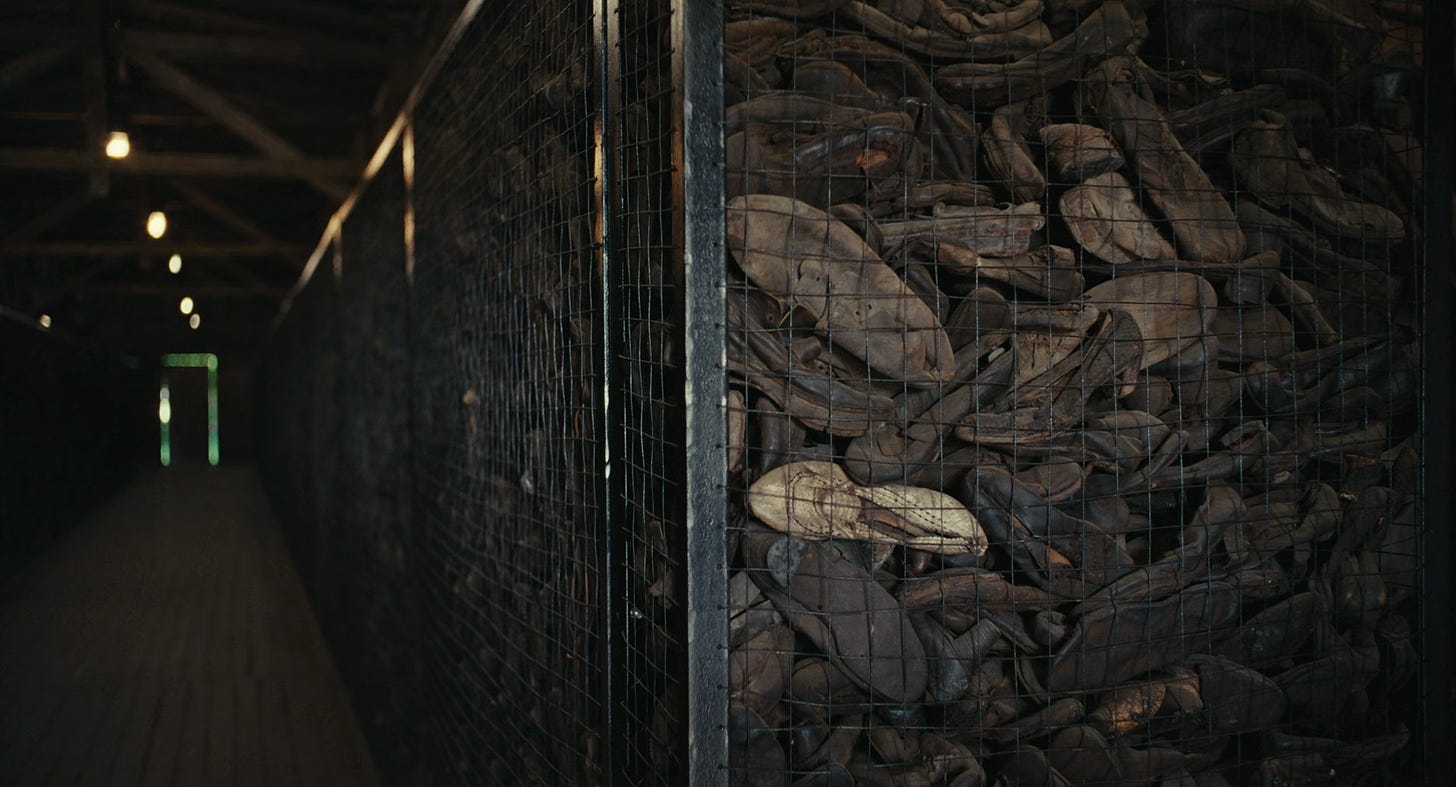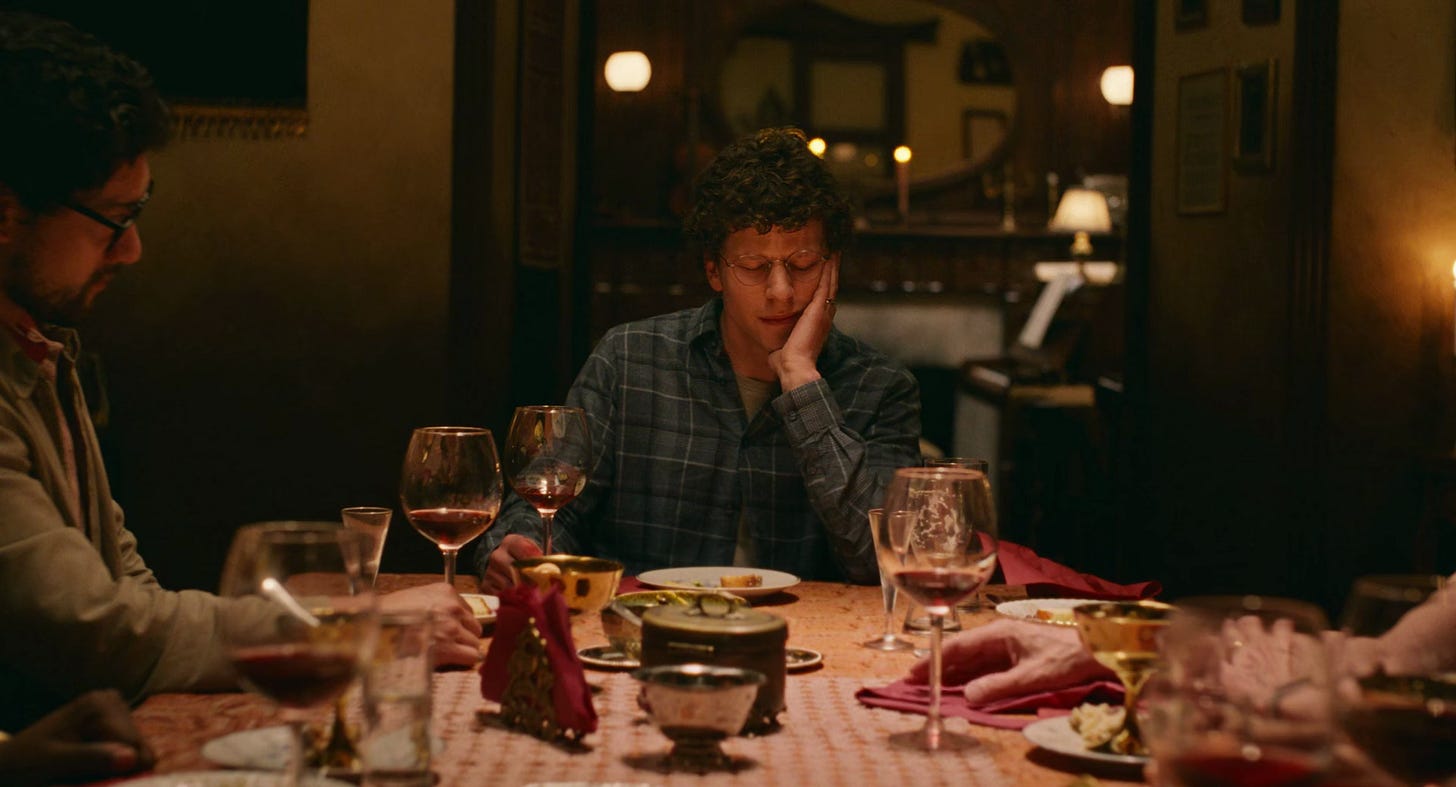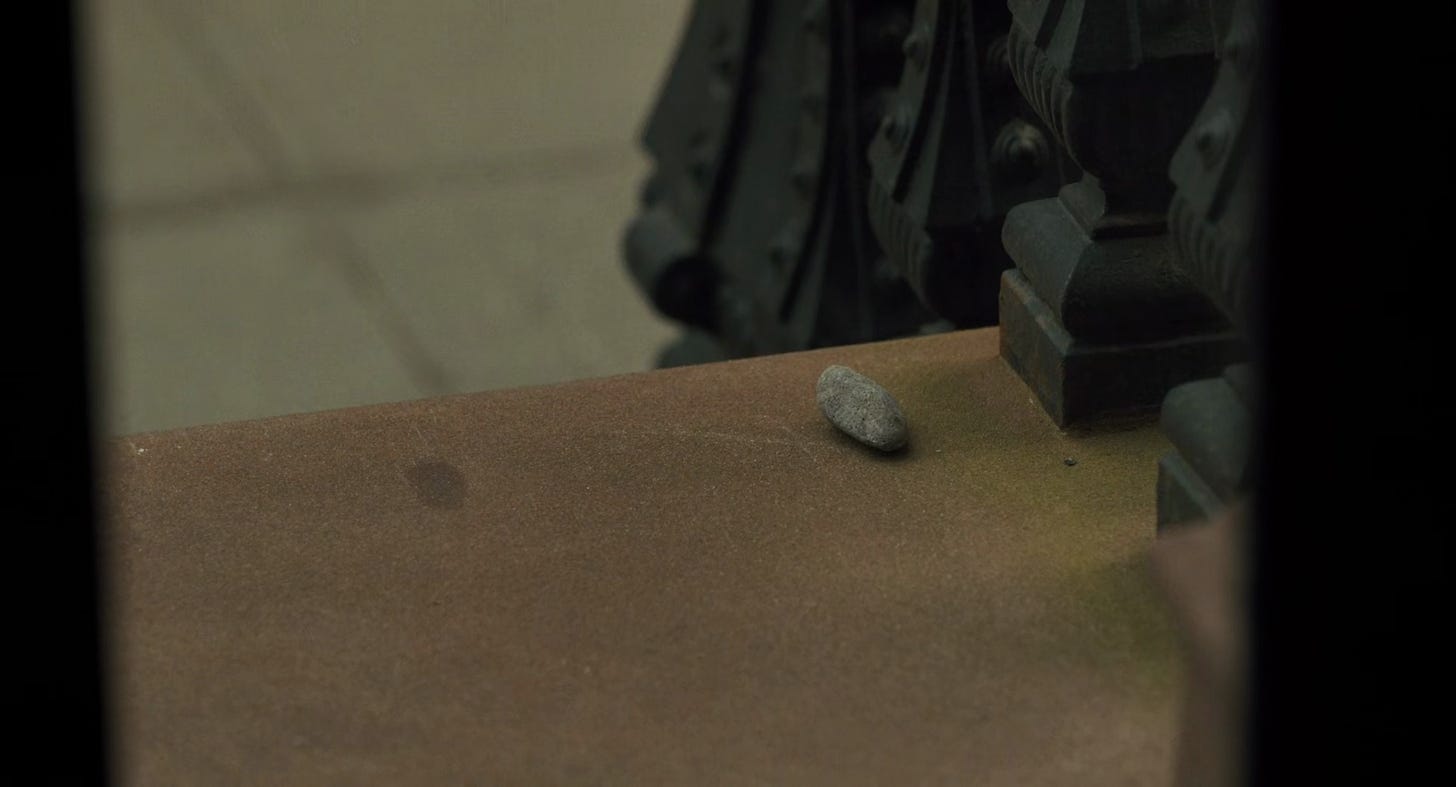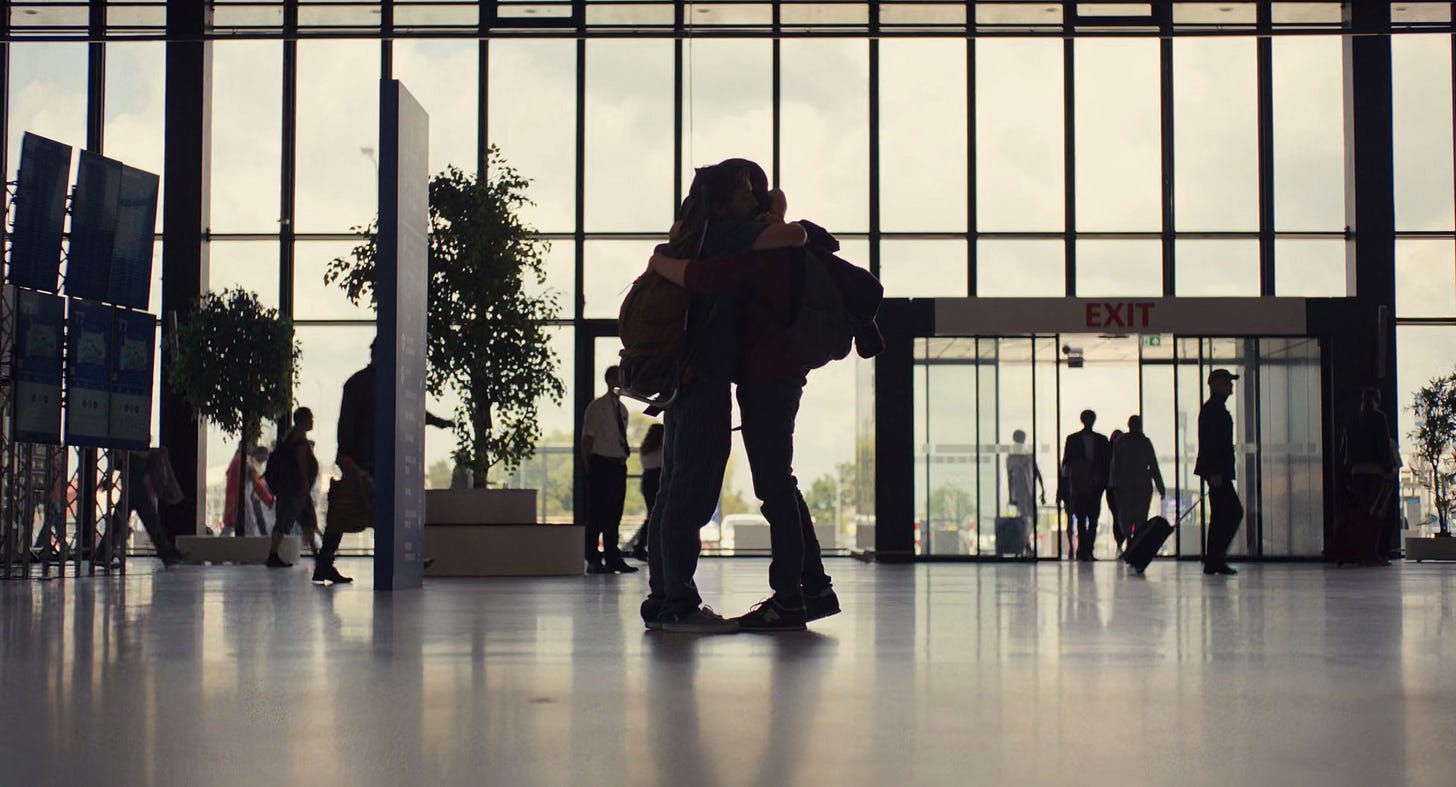In the Memory of the Dead (and the Living): History, Trauma, and 'A Real Pain'
Jesse Eisenberg and Kieran Culkin's foray into the intersection of history and modern life
Dave and Benji are like Wirt and Greg or Sundance and Butch – the stereotypical pair of male companions on adventure where the quieter one looks on as the other one brings life to any room they walk in. That’s where the similarities end. Because Dave and Benji are cousins on a Holocaust remembrance trip to Poland while also grieving their Polish grandma Dory who had a house there after she survived the genocide. Dark turn, right? And yet the film never stops making you laugh. Or sob. With all its layer-upon-layer of grief. All the sadness. Anxiety. Trauma. A Real Pain.
Jesse Eisneberg’s second stint behind the camera (also leading on screen with the force of nature that is Kieran Culkin) in a feature was leagues beyond what I expected. The award season was proof. The undeniable beauty of Warsaw. The editing that forces you to run along with the itinerary. Tzvi Erez’s performance of Chopin. And the most scathing portrayal of the human condition – the individual and the society – that I’ve seen in a while. Let’s dive in, shall we?
We come to honor the dead…
So, besides the cousins, we have a British tour guide who studied Eastern Europe in uni, a couple of descendants of Polish Jews, and a Rwandan man who converted to Judaism after having survived a genocide himself. The troupe goes around posing with statues of the slain and clicking pictures with the monuments and the old shops of Polish Jews that kind of stand like monuments now.
Except when Benji throws a fit about being a first-class traveler in a train. A Jew in a train in Poland. Can’t blame him, right? The privilege brings in survivors’ guilt. Which is alright. Not everyone feels it, and that’s alright too.
While Dave helplessly looks on as Benji oscillates between his childish and moping phases, at an old cemetery, Benji schools the tourist guide to cut down on the statistics: “They’re people, not history lessons.” So, following Jewish tradition, everyone places stones on an ancient grave, to tell the departed they’re not forgotten.
Following that, you see the tourists line up at the concentration camps in an unsettling visual parallel to how their ancestors had lined up there as prisoners, all while the tourist guide reads aloud the chilling descriptions of the torment they faced within those walls. A tall chimney. An oven. A pile of shoes in a cage. The failure of the human species.
And yet, this journey is about more than revisiting history.
…to grieve and heal in our own ways…
In due time, you see Benji’s jovial facade give way to years of repressed trauma. You find out that the man who brings the whole group together had tried to end his own life barely a few weeks ago. The tension between the cousins keeps simmering. And in a direct parallel to Benji’s early meltdown in the train, in a much later scene, Dave’s quiet, reserved shell cracks open as he confronts his own sadness, his own guilt – about the cousin he’d almost lost.
You see this man finally show a sliver of vulnerability about his repressed sadness, one that he’d always had his cousin to lighten up, one that deepened severely when he almost confronted death closer than he’d been prepared for – closer than his grandma Dory or her family in the Holocaust. You see, also, the other guy give up on being the life of the party and just face the fact that his suffering is weighing him down.
Dave says: “my pain is unexceptional; so I don’t feel I need to burden everybody with it.”
Being that I have said those words to myself often, here’s what that tells me: we all have our own sadnesses, true. But we also have our own separate ways of coping with them. Not all of us cry watching a movie. Not all of us can open up to a friend. Not all of us can hire a therapist. And it is alright. We all deserve our own rooms to breathe – and to cry, and to fix ourselves any way we can.
…and above all, to cherish the living.
While you see through Dave and Benji on a tour designed to honor (and sometimes romanticize) the dead, be it their relatives or their ancestors or just people of old that shared their religion, there’s also a not-so-subtle reminder that rings out every so often – how do we treat the living, though?
The long-pending conversation finally happens towards the end of the film. Dave confronts Benji about why he would allow himself to spiral into his sadness instead of visiting Dave and his family. Benji asks why Dave would never visit him either. The answer is fairly simple – life happens. There’s a job, a family to look after, and the only thing we do not have for the ones we love is time.
When the cousins visit their deceased Grandma Dory’s home, though it isn’t a grave, Dave places a stone at the doorstep in her memory. A neighbor quickly objects to that. Because it is against Jewish tradition? No. Because it is a hazard for the person who lives in the house now. So what does Dave do? He goes home and places a stone at the doorstep of his own home, before he enters to meet his family.
And here we are.
I’m not sure I’m going after the most important thing – among many – that A Real Pain says so effectively, but as always, I speak for myself, because that’s as important today as it is difficult. I haven’t been in touch with my friends as much as I’d like to. We all understand what life gets to be as you grow up. Nobody complains. We have effectively built our ladders up into a world where we have everything we want – except people we’d like to share it all with.
Also, we have grown into the shoes of our ancestors without realizing that they didn’t strive for us to be like them, but better than them. I can’t speak for you, but I come from a world where we choose tradition over culture every day. It’s vital to honor your elders and your culture. But somehow, we have made it alright to honor our ancient histories enough to want to hate the people we live with today over it.
There are too many stones on the graves that are thousands of years old. I think I might like to take a day off work and place one at the doorstep of the people who I’ve grown and lived with. Once I’ve made time to cherish the ones I have today, the history will still be there to argue over, to live and to die for.

